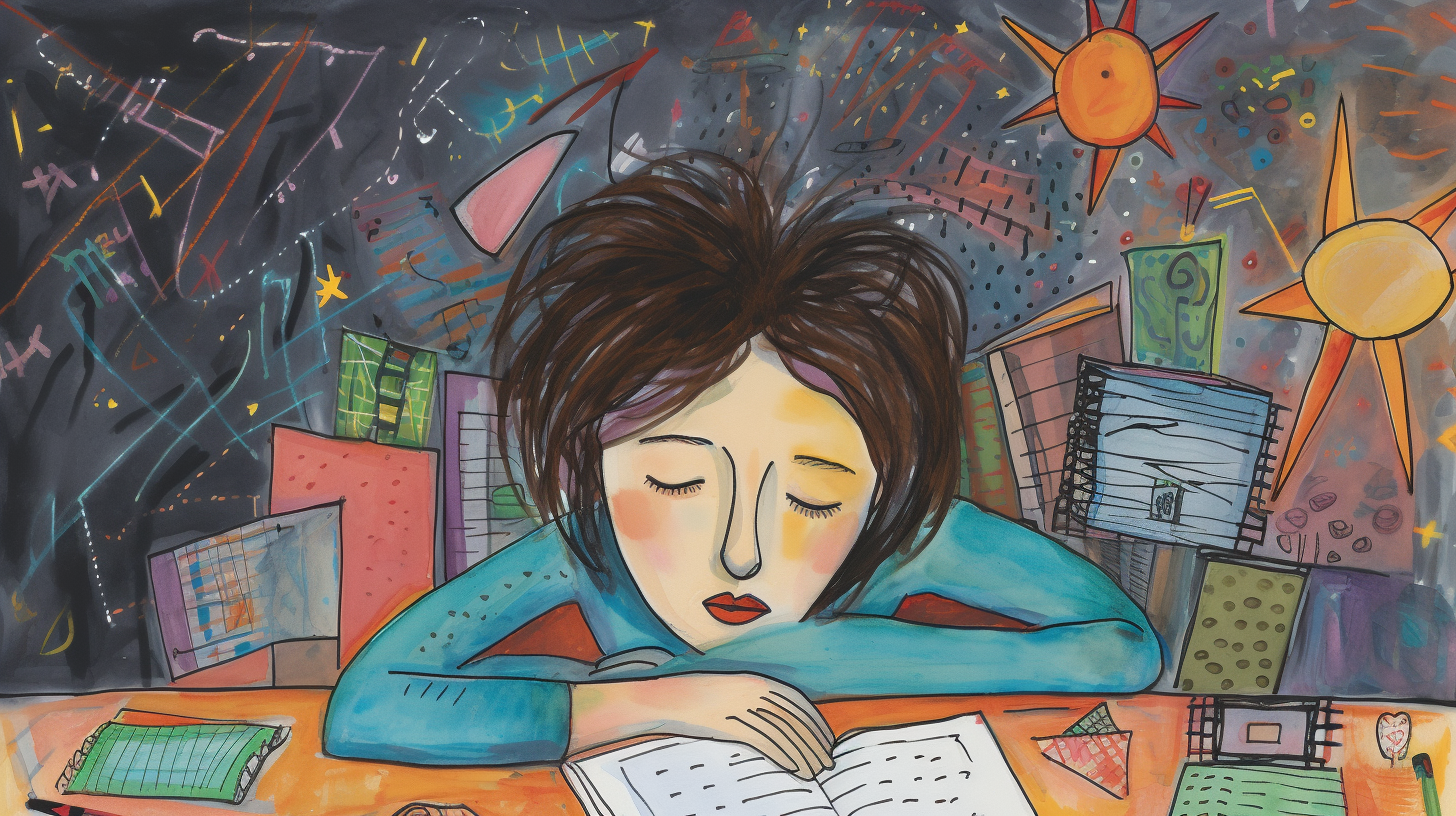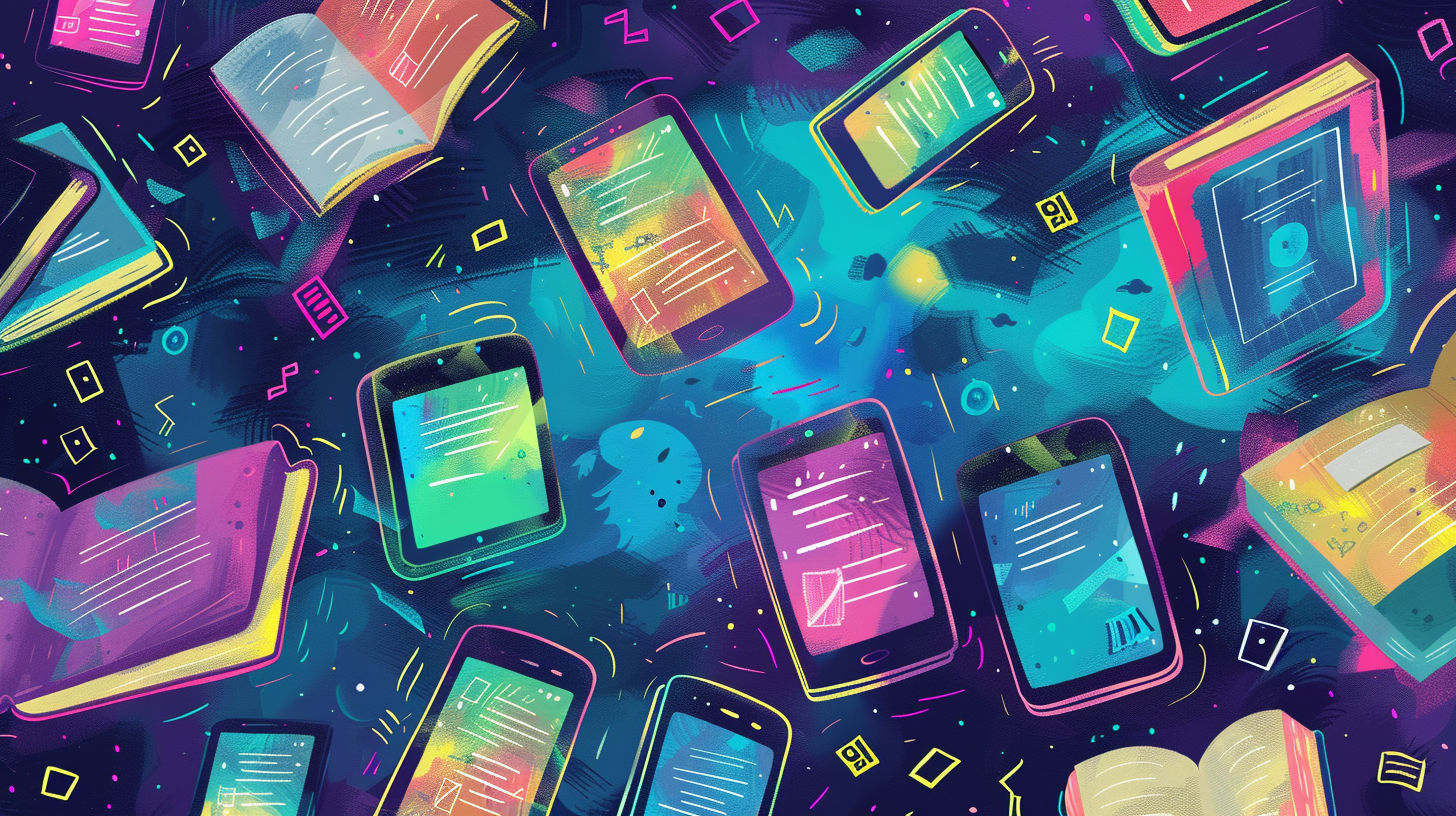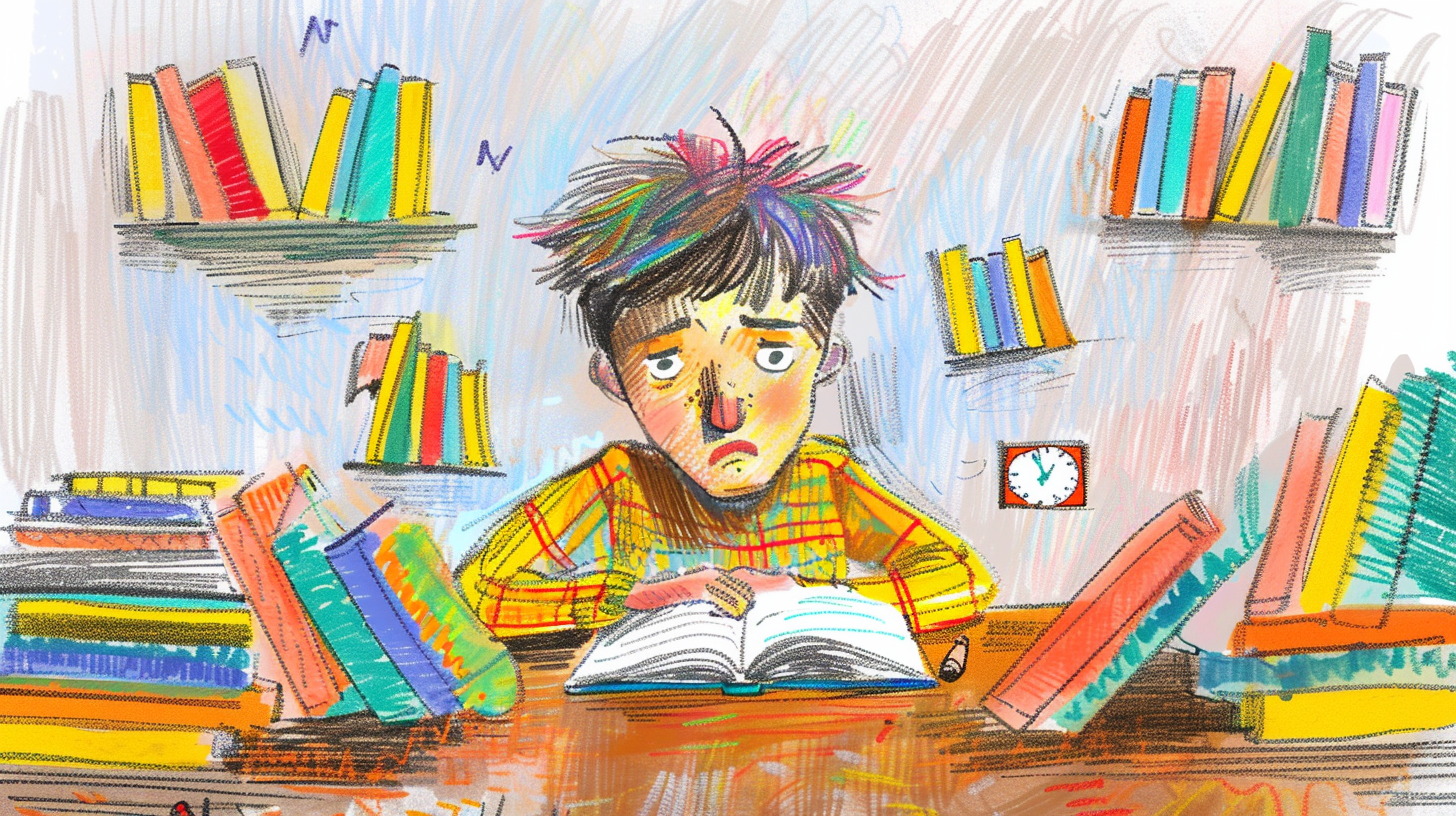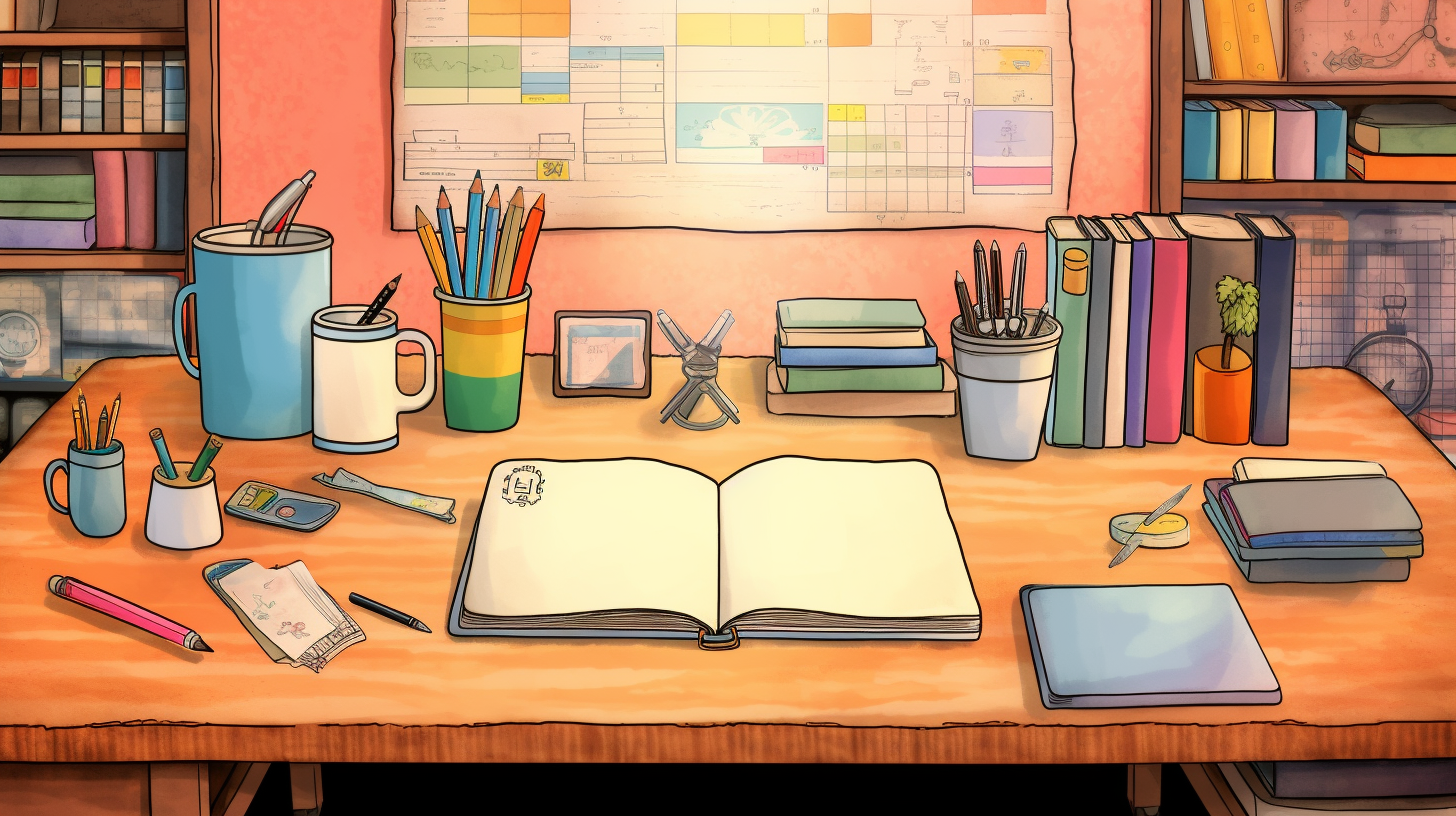Found yourself nodding off with a book in your hands, wondering, “Why does reading make me sleepy?” This common conundrum has simple and complex answers rooted in our body’s response to reading. We’ll explore what happens to your body when you read, delving into the physiological changes that set the stage for sleepiness.
The science behind sleepiness while reading is fascinating, involving a mix of environmental factors and bodily reactions. In this text, we’ll unpack why reading can be a one-way ticket to Snoozeville. We’ll also discuss factors that make reading more likely to induce sleepiness, from lighting to temperature to posture.
Don’t worry, though; it’s not all about dozing off. We’ve got strategies to help you stay awake and focused while reading, ensuring you can enjoy your book without the unintended cliffhanger of falling asleep. Stay tuned to turn the page on your reading-induced drowsiness.
What Happens to Your Body When You Read?
While you’re absorbed in a book, your body undergoes several changes you might not even notice. Ever wondered, “Why does reading make me sleepy?” Here’s what goes on behind the scenes:
Your Brain Releases Serotonin: This is a crucial reason reading makes you tired. As you enter a story, your brain may release serotonin, a hormone promoting relaxation and well-being. Serotonin tells your body it’s time to wind down, which can make you sleepy when reading.
You Experience Eye Strain: Constant eye movement is required as you follow lines of text. Similar to how physical exercise tires your body, this continuous activity can fatigue your eye muscles, leading to feelings of drowsiness. Eye strain could be a contributing factor if you fall asleep while reading.
Mental Effort Leads to Tiredness: Reading is an active mental process. It involves interpreting words, visualizing scenes, and following narratives, which uses your brain’s energy. After prolonged focus, your mind needs to recover, explaining why you might fall asleep when reading or feel tired when reading.
But, you may be seeking solutions on how not to feel tired when reading or how to stay awake while reading. Audiobooks offer a compelling alternative. They can keep you socially active as your eyes and mind get a rest from the strain of reading text. This could be why audiobooks are less likely to tire you than traditional reading.
Your Environment Influences Your Alertness: Dim lighting and uncomfortable seating can exacerbate the problem, further making you sleepy when reading. Adjusting your environment to be more conducive to alertness is crucial. While audiobooks may not change the lighting, they free you up to move around, preventing the stillness that often leads to sleepiness.
Switching to audiobooks could be the key to combating the drowsy effects of reading. You get to enjoy stories without eye strain or intense mental effort, keeping you more engaged and less likely to doze off. It’s appealing if you think, “Why does reading put me to sleep?”
The Science Behind Sleepiness While Reading
Eye Fatigue
When you investigate a book, your eyes tirelessly track each line. Eye Fatigue develops as muscles control eye movements, akin to how your body feels after a strenuous workout. Reading, especially in low light, demands more of these muscles, leading to tiredness. This exhaustion, not unlike physical fatigue, signals your brain to rest, contributing to why reading makes you sleepy.
Eye strain can also cause discomfort like headaches, making the audiobook experience a welcoming alternative. Unlike traditional reading, with audiobooks, there’s no need to worry about staying awake while reading since your eyes get to rest, freeing you from the sleepy feeling of reading.
Cognitive Overload
Engaging with text, your brain works overtime. It assimilates words, conjures imagery, and processes complex ideas, leading to Cognitive Overload – another reason reading makes you sleepy. Whether you’re tackling a complex subject or getting lost in an elaborate story, the mental effort is substantial.
While you ponder how to read without falling asleep, consider the effortless immersion audiobooks offer. They allow you to enjoy stories without getting tired from reading. If you think, “I get sleepy when reading,” it might be time to explore how audiobooks can energize your experience.
Audiobooks might solve the difficulty of why falling asleep while reading is so common. They bypass the need for intense focus and light-sensitive eye activity, paving the way for a livelier engagement with literature. You can absorb content effortlessly, avoiding the “why do I fall asleep when I read” dilemma.
As you seek ways on how not to feel tired when reading, remember that audiobooks offer a way to access tales without the strain. Say goodbye to falling asleep when reading and embrace a vivid listening journey that keeps you alert and enchanted.
Factors That Make Reading More Likely to Induce Sleepiness
As you explore the reasons behind your drowsiness during reading sessions, understanding the factors contributing to sleepiness is crucial. If you find reading makes you sleepy or often fall asleep when reading, let’s look at what might be causing this.
Lighting Conditions
Good lighting is essential to keep you awake and alert while reading. Inadequate light can strain your eyes, leading to discomfort and fatigue. If you’re wondering why you get sleepy when you read, check the brightness of your space. Rooms that are poorly lit can signal to your body that it’s time to wind down, mimicking the natural decrease in light that occurs as evening approaches. To combat this, ensure your reading area is well-lit to maintain focus without causing eye strain.
When considering how to stay awake while reading, remember that the light should be bright enough to illuminate the text clearly but not harsh enough to cause glare. A well-lit environment can significantly reduce the chances of you getting tired and improve your overall reading experience. But, if you still find yourself falling asleep when reading despite good lighting, audiobooks might offer a solution. The ease of listening can keep you engaged, allowing you to enjoy literature without optimal lighting conditions.
Comfort
The quest to understand why reading makes you sleepy often leads to a level of comfort in your reading space. Comfortable and cozy nooks are ideal for immersing oneself in a good book, but they can also promote sleepiness, especially if you’re prone to falling asleep when reading. Your favorite chair or a snug sofa corner might be too inviting, convincing your body it’s time to relax and possibly sleep.
To prevent tiredness when reading, choose a supportive chair with good posture to help maintain alertness. If you ask how not to feel tired when reading, it’s about finding the balance between comfort and sleep-inducing coziness. Keeping a more upright position can help as well. If you’re tired when reading, it’s time to reconsider your setup.
Interestingly, audiobooks can become a perfect ally in this scenario. They allow you to enjoy stories without needing to find that perfect spot. You can listen while moving around, which aids in staying awake and avoiding the sleepy sensation that often comes when settling down in comfortable places. Plus, audiobooks prevent the issue of falling asleep while reading entirely, as your eyes are free to take a break, reducing the drowsiness commonly associated with eye fatigue.
Summarizing to combat the issue of why you get so tired when you read, optimize your lighting and consider the degree of comfort in your reading environment. And if you often find yourself sleepy when reading, it might be time to explore the convenience and engagement offered by audiobooks. Whether you’re trying to stay awake when reading for study or leisure, these adjustments might transform your experience.
Strategies to Stay Awake and Focused While Reading
You might often wonder, “Why does reading make me sleepy?” or find yourself nodding off, thinking about how to stay awake while reading. You’re not alone, and there are methods to keep the drowsiness at bay. If reading makes you sleepy, consider these techniques to remain alert and retain information better.
Take Breaks
If you’ve ever asked yourself, “Why do I get tired when I read?” It might be because you’re plowing through the material without a pause. To combat this, set a timer for every 30 minutes to an hour and take a short break when it goes off. This simple act can drastically improve your focus and reduce fatigue from falling asleep while reading.
Regular breaks serve several functions:
- They help reset attention spans, allowing you to maintain concentration when you return to reading.
- Breaks offer an opportunity for some physical movement, reducing the lethargy from prolonged sitting.
- They give your eyes a chance to rest, countering the strain of staring at a page or screen that often leads to feeling sleepy when reading.
During these intervals, you could:
- Stretch
- Walk around
- Splash cold water on your face
These breaks disrupt the monotony that might lead to falling asleep when reading and re-energizing your body and mind.
Engage in Active Reading
To keep the question “Why does reading make me sleepy?” at bay, engage actively with your text. This doesn’t just keep you awake; it enhances comprehension and retention, providing a fuller listening experience akin to the engagement of audiobooks.
Active reading involves:
- Taking Notes: Write down key points or thoughts as you read.
- Asking Questions: Probe deeper into the material to lock in your focus.
- Visualization: Imagine scenes or concepts in your mind vividly, as if listening to a descriptive audiobook narrative.
- Making Connections: Relate the material to personal experiences or existing knowledge.
- Discussing: Share insights with others to open up new viewpoints and sustain engagement, similar to participating in a community of audiobook enthusiasts.
By employing these strategies, reading won’t just be a passive activity; it becomes an interactive experience. It mirrors the benefits of audiobooks, which can often make the content more accessible and vivid, reducing the chances of getting sleepy when reading.
These methods not only address why you might get sleepy when you read or study, but they also offer a pathway to a more lively and immersive reading session. Whether you’re trying to avoid falling asleep while reading your favorite novel or seeking how not to fall asleep while studying for an exam, infusing active techniques and taking regular breaks ensures you stay awake and absorb more from your reading materials.
Conclusion
You have the tools to turn the page on drowsiness and make reading an energizing part of your day. Remember, regular breaks, a little movement, and some rest for your eyes aren’t just suggestions—they’re your secret weapons against the snooze. Jump into your books with active reading techniques that keep you awake and deepen your understanding of the material. So grab your favorite book, and let’s keep those eyes open and the mind alert—one page at a time.
Frequently Asked Questions
What are some strategies to stay awake while reading?
To stay awake while reading, take regular breaks, engage in physical activity, rest your eyes, and practice active reading by noting key points, asking questions, and discussing the content. Keep the lighting bright, maintain an upright posture, avoid reading in your bedroom, stay hydrated, eat healthy snacks, and consider reading with friends for a more interactive experience.
How can I reset my attention span during long reading sessions?
Reset your attention span by taking short, scheduled breaks throughout your reading session. This helps to refresh your mind and maintain focus when you return to your material.
What is active reading, and how can it help me?
Active reading is a dynamic process of engaging with the text by taking notes, asking questions, visualizing concepts, and drawing connections. This interaction not only combats sleepiness but also improves comprehension and retention of the material.
Can taking notes while reading improve my focus?
Yes, taking notes while reading can significantly improve your focus. It encourages active engagement with the text, helps retain information, and reduces the likelihood of your mind wandering or becoming sleepy.
What are some simple ways to prevent sleepiness when reading?
To prevent sleepiness, read in a well-lit room, sit upright, stay hydrated, eat healthy snacks, move around regularly, avoid comfy furniture that may prompt drowsiness, and engage in active reading practices.




